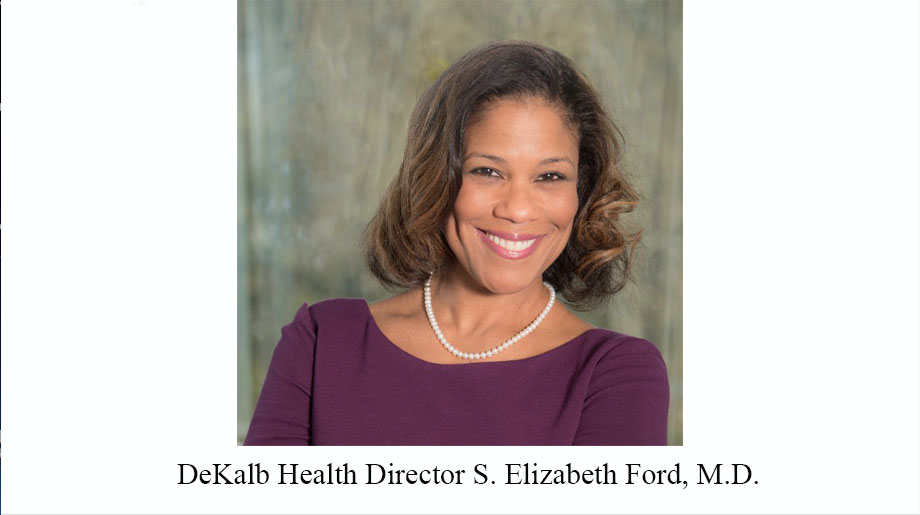DECATUR, GA—Mental health, racial equity, strengthening the community, and rebuilding the public health workforce are just some of the focus areas for this year’s observance of National Public Health Week , April 5-11. As the COVID-19 pandemic passes its first full year, it has revealed significant challenges and opportunities in public health in DeKalb County, the district’s health director says.
“The pandemic has simply magnified issues that have plagued public health for several decades,” said District Health Director S. Elizabeth Ford, M.D. “For many years, we’ve worked with a reduced workforce and reduced funding, not only locally, but across the country. The inequities in access that are being discussed so frequently with respect to COVID-19 are the same inequities the public health workforce has been trying to manage with respect to chronic diseases such as diabetes, asthma, and cardiovascular disease. It certainly has been a formidable challenge, but we’ve tried to make it work through collaborations and partnerships.”
One of the greatest local challenges was the toll the pandemic took on the Board of Health’s workforce. Everything that happened in the world—illness, hospitalizations, death—was also experienced at the Board of Health. Conservatively, at the height of the pandemic, about one third of the staff was unavailable, due to either medical fragility, or childcare issues resulting from school closures. Yet, the demand for services —COVID related and otherwise —never diminished, Ford said.
While the Board of Health has experienced challenges, the pandemic has provided an unprecedented opportunity to address healthcare inequities in the county. The recent arrival of 10 new mobile health units, provided with support from DeKalb County Government through the Coronavirus Aid, Relief, and Economic Security (CARES) Act, will allow the agency to address this issue and many others. Dubbed a “game changer for health care delivery in DeKalb County, the units not only allow the Board of Health to address the current pandemic, but will ultimately be able to address underlying chronic health issues in the county that led to over-representation of populations of color in COVID-19 cases, such as hypertension, diabetes, and food insecurity.
“We have an opportunity to do amazing things to improve health and well-being,” Ford said. “However, it’s going to take consistent investment of not only money, but human capital, as well. With that said, I would be remised if I didn’t take the opportunity during National Public Health Week to thank our amazing team, who give their heart and soul every day to ensure the safety of our community. Your work is truly appreciated.”


![Validate my RSS feed [Valid RSS]](https://web.archive.org/web/20240108205913im_/https://ocgnews.com/wp-content/uploads/2022/07/valid-rss-rogers.png)


